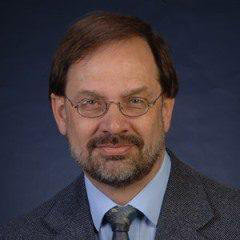Abstract
As research data volumes grow, and US policy requires open access to federally funded research outputs, increasing attention is being paid to developing and operating the infrastructure for making data FAIR. At NIST this includes the development of several discipline-specific data discovery platforms, an institutional open data repository, and laboratory information management systems (LIMS) that help to create FAIR data from electron microscopes. However, not all FAIR data is necessarily open or free. NIST’s Standard Reference Data portfolio includes some fee-based products, and the data that we manage for the CHIPS Act will have stringent confidentiality requirements. All of this is happening in the context of the push for open data and open science, this being the Year of Open Science for US government agencies. The US has, unfortunately, fallen behind several other global initiatives that are fostering open science, though efforts are now underway in both government and academia to address this shortcoming.
Bio
Dr. Robert J. Hanisch is the Director of the Office of Data and Informatics, Material Measurement Laboratory, at the National Institute of Standards and Technology in Gaithersburg, Maryland. In this role he is responsible for improving data management and analysis practices and helping to assure compliance with national directives on open data access. Prior to coming to NIST in 2014, Dr. Hanisch was a Senior Scientist at the Space Telescope Science Institute, Baltimore, Maryland, and was the Director of the US Virtual Astronomical Observatory, a program funded by NSF and NASA. In the past twenty years Dr. Hanisch has led many efforts in the astronomy community in the area of information systems and services, focusing particularly on efforts to improve the accessibility and interoperability of data archives and catalogs. He was the first chair of the International Virtual Observatory Alliance Executive Committee (2002–03). From 2000 to 2002 he served as Chief Information Officer at STScI, overseeing all computing, networking, and information services for the Institute. Prior to that he had oversight responsibility for the Hubble Space Telescope Data Archive and led the effort to establish the Multimission Archive at Space Telescope—MAST—as the optical/UV archive center for NASA astrophysics missions. He has served as chair of the Program Organizing Committee for the Astronomical Data Analysis Software and Systems conferences, chair of the Space Science Data Systems Technical Working Group, chair of the Astrophysics Data Centers Coordinating Committee, chair of the Publications Board of the American Astronomical Society, chair of the AAS Working Group on Astronomical Software, and co-chair of the US Decadal Survey Study Group on Computation, Simulation, and Data Handling. He completed his Ph.D. in Astronomy in 1981 at the University of Maryland, College Park.


